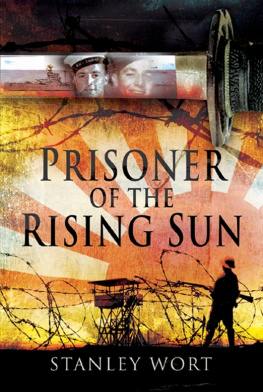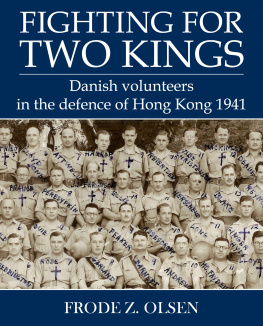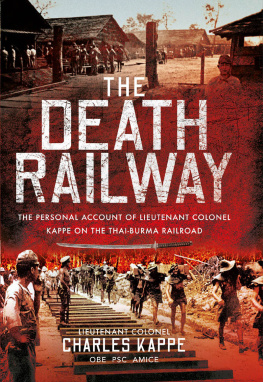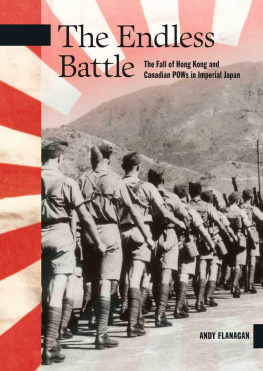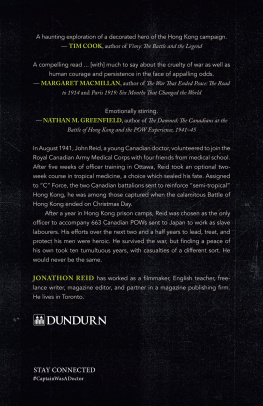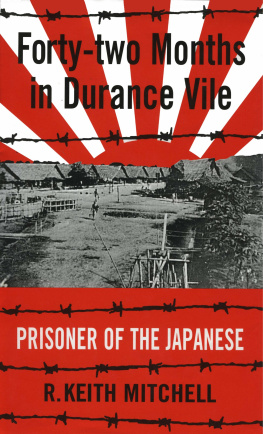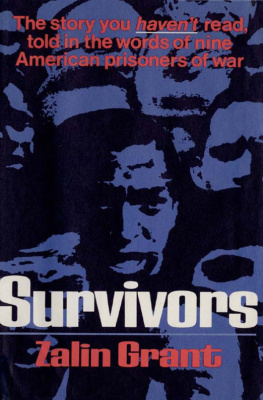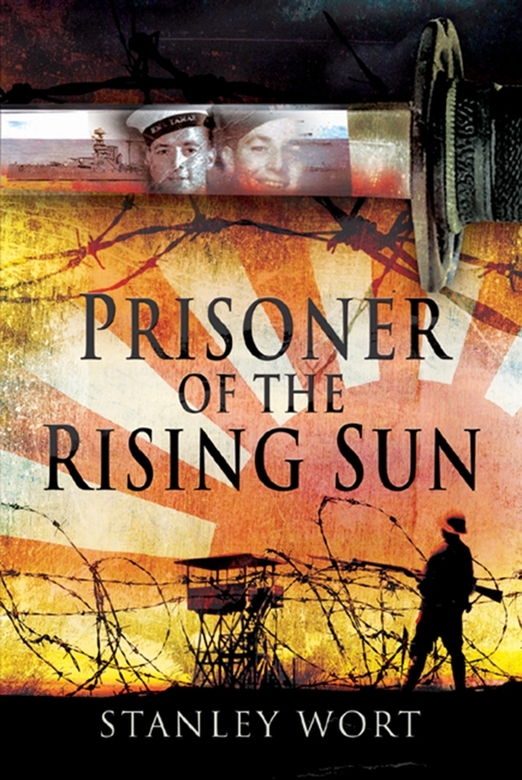In producing this narrative I have received invaluable assistance and encouragement from two other Second World War Royal Navy veterans: Arthur Ray, who as a Fleet Air Arm pilot flew Swordfish aircraft in the Atlantic and Norwegian theatres, and Grumman Avengers in the Pacific; and Bill Fullilove, who spent his war in landing craft, and in one such vessel landed American troops on Omaha Beach on D-Day, 6 June 1944. My grateful thanks to both of them.
Stanley D. Wort
Epilogue
Adapting to civilian life was not as easy as I had anticipated. The long years in the prison camps had not only been detrimental to ones health but had left the mind out of condition. I found, for example, that mathematics that had once been my forte was no longer so and comprehension of complex concepts was annoyingly difficult. I failed by a narrow margin two professional examinations that I should have passed easily and began to feel frustrated. The post I had had in the civil service, whilst desirable in the days of the pre-war depression for the job security it afforded, was no longer attractive and I suppose I missed the camaraderie that bound all POWs together.
I felt I was becoming depressed and made a conscious effort to remind myself how fortunate I was to be alive. I recalled the number of instances where death had been escaped by a hairs breadth. For example, the bombs that just missed in Narumi, the two paddy fields that saved us in the fire raid on Toyama and the atomic bomb that was dropped on Japan and ended the war without an invasion of the Japanese home islands which would have meant our execution. I thought too that had I not been sick with diphtheria I would have been on the ill-fated Lisbon Maru draft, and then there was the timely arrival of the diphtheria serum in Sham Shui Po and the sulfur thyasol in Narumi. Were these all coincidences or were there other influences at work? My mother thought there were she had prayed for my safe return every night since I joined the Navy. She told me that twice whilst I was a prisoner she heard me calling to her during the night and as far as I was able to ascertain those two occasions coincided with the times I was ill with diphtheria and pneumonia.
Two years after my release, although my mind was back up to speed, I was still experiencing periods of self-doubt and indecision. I had bought a motorcycle with my Navy back pay and it gave me mobility, which seemed to be something I craved. Riding it around one day with no particular destination in mind I found myself in Salisbury and remembered that according to the Bishop who had confirmed me in the Church of England, this was my home. I had been about eleven years old at the time and although we lived then in Poole in Dorset I was confirmed by the Bishop of Salisbury in whose see my local church was located. I remember him seeing each one of us communicants after the ceremony and having a few words with us. He told me that wherever I went in the world Salisbury would always be my home. The fact that Salisbury, a town I had not then visited, was to be my home did not mean very much at the time. Nor did I feel any sense of homecoming now I was in the town, but I decided that whilst there I might as well visit the magnificent cathedral with its towering spire and its copy of the Magna Carta.
I walked along the path across the extensive lawn that encompasses two sides of the cathedral, marvelling at the dedication and skill of men, dead some 700 years, who had produced this wonderful physical expression of their faith. I felt they must have had stronger faith than that of contemporary Christians. I could not envisage anyone building a new church let alone a cathedral in the social economic climate that prevailed in 1947. Then I came to the outer entrance doors that opened onto a small lobby, at the end of which was another set of doors leading into the cathedral itself. I stepped through and as I did so was enveloped in something which defies description. The best I can do is liken it to being immersed in a hot bath after the first football practice of the season and feeling the aches and the stiffness drain away. Only the relaxation was not of the body but of the mind. Clarity of thought ensued and intensified as I entered the cathedral proper. Things that had been troubling me faded into insignificance and it felt as though my mind was being rearranged into a more efficient configuration. I began to know what I should do and what direction I should take. Quiet confidence replaced my indecision and I was conscious of a deep feeling of well-being. I felt physically liberated and seemed to float around the cathedral. My vision was enhanced as though a film, such as that caused by the cataracts I developed in later life, had been removed from my eyes and everything looked brighter and more colourful. I remained in the cathedral for nearly an hour and the strange and wonderful feeling stayed with me throughout. The moment I stepped outside it was gone just as if it had been switched off. I have been back to Salisbury Cathedral many times and I always felt at home there, but the phenomenon has never reoccurred.
It does not have to for the one experience cleared my mind and showed the way forward. As to what it was, I know it was not an hallucination. My fiance was with me when I experienced it and I was able to tell her about it as it happened. It could not have been drug induced for other than prescribed medication I have never taken a drug in my life. I believe it came from beyond the dimensional limitations of terrestrial life, from something or some force that for want of a better word most of us refer to as God. For me His (or Hers or Its) existence is no longer in doubt and I have complete faith that He does.

